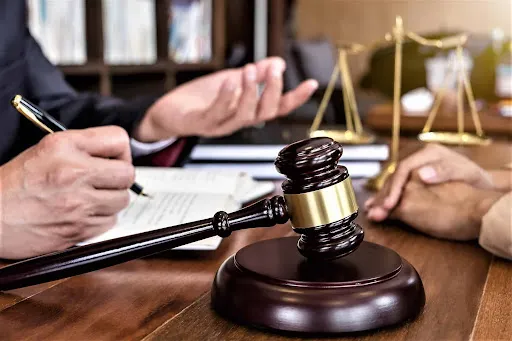Sexual abuse cases come with challenges that can be tough for everyone involved. Lawyers in this field need not only a strong grasp of the law but also a deep understanding of their clients’ emotional needs. These cases require attorneys who can handle sensitive issues with care and provide a supportive environment for survivors, helping them regain their voices amidst the difficulties they face.
The work of a sexual abuse lawyer is often undervalued, yet they play a central role in seeking justice. From earning survivors’ trust to handling tough situations, these lawyers possess unique skills that allow them to advocate effectively. Emotional resilience, adaptability, and clear communication are key qualities that help them represent those who have gone through significant trauma.
Contents
Building Survivor Trust in Sensitive Circumstances
Creating a secure and supportive space for survivors is vital to the success of a case. Sexual abuse lawyers use active listening techniques to show genuine care and empathy. When survivors feel safe enough to share their experiences, it builds a strong attorney-client relationship. Non-judgmental communication is essential, helping survivors open up without fear and fostering a sense of safety that they may not have elsewhere.
Using trauma-informed practices helps attorneys manage emotional volatility while staying professional. These strategies identify triggers and guide necessary discussions for case preparation. By balancing survivor comfort with legal needs, lawyers enable clearer conversations and more accurate testimonies.
Adapting to Legal Challenges
Unexpected obstacles are common in sexual abuse cases, requiring lawyers to adapt quickly. Cases involving institutional cover-ups or complex statutes of limitations demand creative problem-solving. Attorneys often examine multiple legal options, such as state and federal laws, to find the best path forward. Strategies might include filing motions to address jurisdictional issues or finding ways to overcome legal barriers.
Staying updated on legal developments enhances their ability to act effectively. Knowledge of recent rulings or changes to laws can provide new opportunities in a case. Continuous learning and staying aware of courtroom dynamics help lawyers handle the unpredictable nature of litigation and achieve better results for their clients.
Managing High-Pressure Negotiations with Precision
Settlement negotiations require a careful mix of assertiveness and empathy. Sexual abuse lawyers advocate for fair compensation while respecting their clients’ emotional needs. Understanding that survivors carry the weight of their experiences, these attorneys approach discussions with sensitivity and strive for outcomes that honor both justice and dignity.
Emotional intelligence is a must when tensions run high during negotiations. These lawyers stay composed and persuasive, even when facing large institutions or insurers. Active listening helps them adjust their strategies based on cues from the other parties. Focused on their clients’ needs, they passionately and thoughtfully push for the compensation their clients deserve.
Emotional Resilience in High-Stakes Advocacy
The emotional toll of sexual abuse cases can be heavy on lawyers, often leading to burnout. Handling these cases requires a high level of engagement and empathy, which can blur the line between professional and personal boundaries. To manage this, lawyers must develop personal coping strategies like mindfulness, regular exercise, and setting boundaries to maintain their mental health while supporting survivors.
Peer and mentor support within the legal profession is also vital. Sharing experiences and seeking advice from seasoned colleagues helps build resilience and reduce feelings of isolation. Regular check-ins with trusted peers provide valuable insights for managing stress and staying focused during intense litigation.
Amplifying Survivors’ Voices in Courtroom Narratives
Telling a survivor’s story effectively in court requires sensitivity and advocacy. Sexual abuse lawyers excel at presenting evidence that supports legal arguments while also humanizing their clients’ experiences. By carefully selecting and presenting details, they help jurors understand the profound impact of trauma on survivors’ lives.
Linking individual cases to broader social issues adds depth to their arguments. Highlighting systemic problems encourages jurors to consider the wider implications of their decisions. By including expert witnesses and survivor testimonials, lawyers can create compelling narratives that challenge biases and enhance understanding of the survivor’s experiences.
Sexual abuse lawyers are essential in helping survivors by combining legal skills with empathy and care. To succeed in these cases, they need to build trust, handle tough legal challenges, and approach negotiations with sensitivity and confidence. Using trauma-informed strategies helps survivors feel safe and supported as they share their stories. Lawyers also need to take care of their own mental health by setting boundaries and leaning on colleagues for support. In court, presenting clear, powerful stories that show the survivor’s experience and the bigger picture can make a real difference. With these tools, lawyers can fight for justice while staying grounded in this demanding work.







